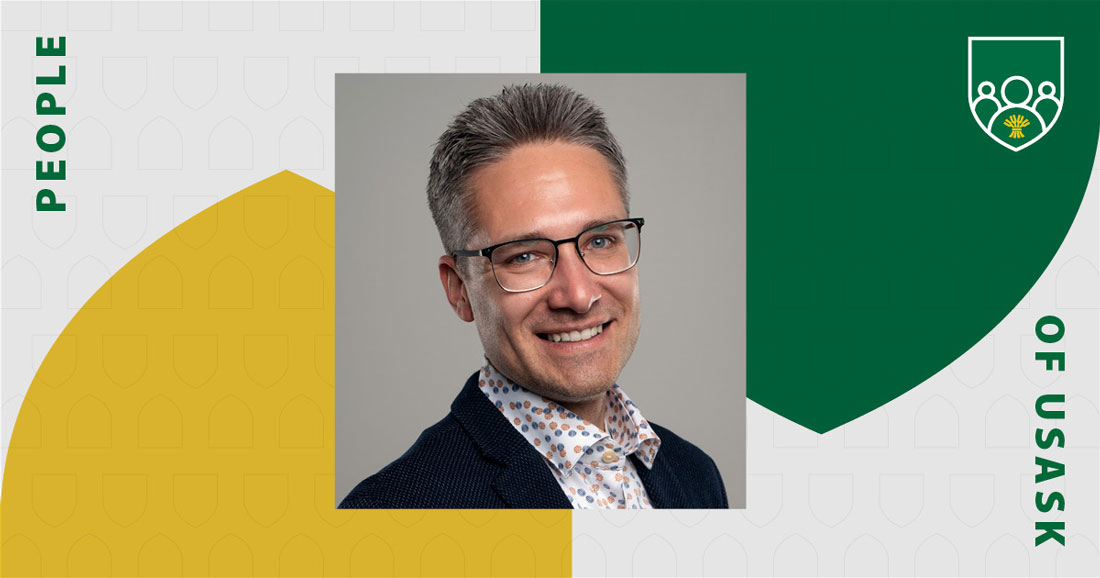
People of USask: Matt Petrow
Matt Petrow (BComm’10, MPAcc’12) is the chief financial officer at Coconut Software in Saskatoon. It’s a business that provides customer engagement software, mainly appointment scheduling and video banking solutions for financial institutions.
Matt Petrow (BComm’10, MPAcc’12) is the chief financial officer at Coconut Software in Saskatoon. It’s a business that provides customer engagement software, mainly appointment scheduling and video banking solutions for financial institutions. Here are his responses to five questions posed to him about his USask experiences:
You spent many hours on campus. Do you recall a favourite class?
Definitely the fraud prevention and forensic accounting cIass with Prof. Doug Kalesnikoff. The class covered cases of fraud and white-collar crime, and how forensic accounting and financial analysis are used to detect and prevent fraud. I really enjoyed it because it shone a light on a different way accounting and finance education can be used outside of the standard business functions. People often think of accounting as a boring behind-the-scenes function, but it can also be used to fight crime!
If you could go back in time, what would you tell your first-year self as a piece of advice?
To understand the importance of networking and the social part of school and do a better job balancing that with shooting for high grades. Over the years, I’ve learned that in a lot of ways there’s more value to building relationships and creating a strong network, and that’s something that can be hard to understand until you leave university and enter the workforce. So that would be my advice to myself, slow down a little bit to enjoy the social aspect of school and meet more people.
Are you surprised at where your education took you to where you are today?
Yes, where I’ve ended up is quite different from what I would’ve been thinking years ago. When I first decided to pursue accounting my ideal job was to move to a financial hub like Toronto or New York to work with a big firm, or to work in the finance department with a big company like Cameco or Nutrien. So that was where I started – first articling with Deloitte in Saskatoon where I spent the majority of my time working with Nutrien who was a client at the time, and then I worked in financial reporting with Cameco for four years. From there I moved into a different industry in entertainment with TCU Place, which opened up my eyes to the option of using a financial background in a less traditional setting and being able to have more influence in a smaller organization. Now I’m with Coconut Software and it’s even further from a conventional accounting or finance role with a big company. The culture at Coconut is much more relaxed (I get to work from home and wear shorts to work which is something I would’ve never expected), and the role itself is much more entrepreneurial, it allows me to use my skills to help grow and optimize the company and influence other areas outside of finance like HR and operations. The business model of a start-up like Coconut is also very different from the traditional profit-driven strategy that is the focus during accounting school. The entrepreneurial side of business wasn’t something I had thought about much as I went through university, but in this role, I’ve realized more of an interest in building from scratch and influencing the direction of the company.
Is there something you learned on campus that you still use today?
Business and finance are very technical areas and so I’m using a lot of what I learned in school almost every day on the job. The MPAcc program in particular focused a lot on applying technical finance skills to solve problems and develop strategy, and those concepts have been especially important in my recent roles. The pressures of working through projects and preparing for the CPA exam also helped build soft skills like communication, collaboration, and composure under pressure which are used on a daily basis. Those soft skills are valuable takeaways even though it doesn’t always feel like it at the time.
What makes the USask campus special to you all these years later?
The two things that stick out for me are the beauty of the campus, and the friends made during my time there. The campus itself is such a wonderful spot – during university I lived just across the river from campus, and so I spent a lot of time going there for walks or to meet up with friends. My wife and I still like to visit there for walks and take it all in. I have a handful of good friends that I went to university with who are still friends today, we still get together regularly and now our families and kids are friends too. Those friendships started on campus and so that also makes it a pretty special place.
It’s the People of USask who enable us to be what the world needs.

